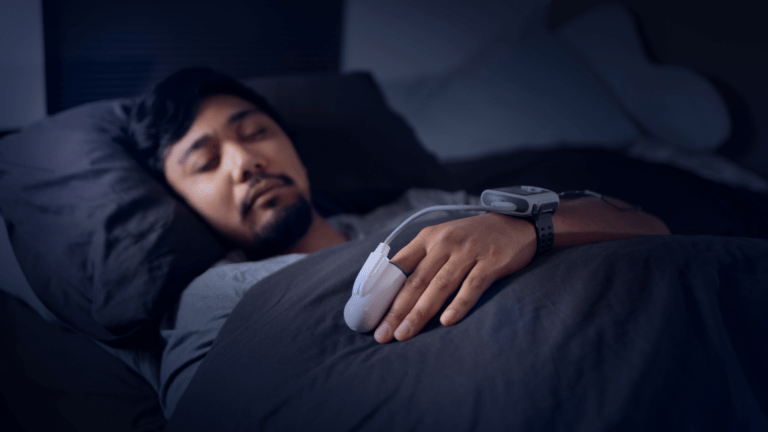Let’s start by clearing up a common misconception: You don’t necessarily need to hit a specific number of hours of REM sleep every night. The belief that everyone needs a fixed amount of REM sleep, like some golden ticket to great health, isn’t entirely accurate. The amount of REM sleep your body needs depends on age, lifestyle, and overall health.
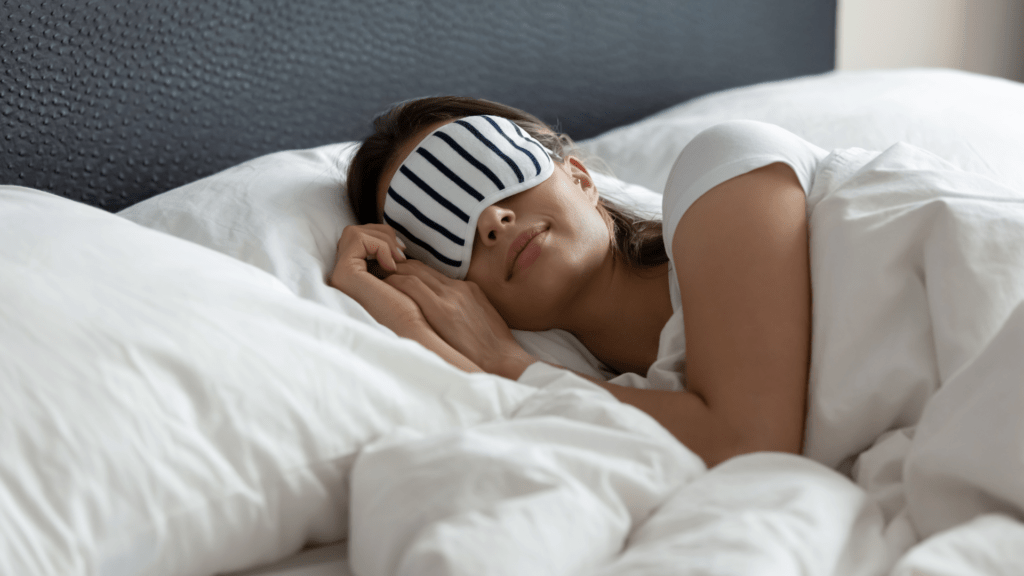
Instead of obsessing over getting more REM sleep, what’s more important is focusing on improving your overall sleep quality. It’s the balance of all sleep stages—light sleep, deep sleep, and REM sleep—that ensures your body and brain are fully restored by morning. Each stage has its role; they all work together to deliver a good night’s sleep.
The Balance of Sleep Stages
You might wonder: How much REM sleep do you need? Generally, REM sleep makes up about 20-25% of your total sleep time. That means if you sleep for 8 hours, you’d spend roughly 90 to 120 minutes in REM sleep. But again, this isn’t a rigid number. The key is allowing your body to move through all stages of sleep—light sleep, deep sleep, and REM sleep—without interruptions.
It’s important to understand that each stage of sleep serves a different function. Light sleep (Stages 1 and 2) is like the entry point where your body starts to relax. Deep sleep (Stage 3) is where your body repairs itself, strengthening your immune system and muscles. Finally, REM sleep (Stage 4) is the stage that supports brain functions like memory consolidation and emotional processing. So while REM is essential, it’s not more important than the others.
What Happens During REM Sleep?
To understand why REM sleep is important, let’s break down what happens during this stage. REM stands for Rapid Eye Movement, and it’s the part of your sleep cycle where your brain is most active. During REM sleep, your eyes move rapidly behind your eyelids, and your brain waves resemble those of being awake. This stage usually kicks in after you’ve cycled through light and deep sleep.
Brain Activity and Dreaming
One of the most fascinating parts of REM sleep is that it’s when most of your vivid dreaming occurs. Your brain is buzzing with activity during REM, processing information, emotions, and experiences from your day. This is why REM is so critical for memory consolidation—your brain sorts and stores information, almost like hitting the “save” button on your daily experiences.
Physical Changes in REM Sleep
While your brain is super active, your body is paralyzed during REM sleep. This is called REM atonia, and it’s a safety mechanism that keeps you from acting out your dreams. Your breathing becomes irregular, and your heart rate and blood pressure can fluctuate, making this stage unique compared to the steadier patterns in deep sleep. This phase is also when your brain clears out unnecessary neural connections, helping you stay mentally sharp.
How Much REM Sleep Should You Get?
While REM sleep typically makes up about 20-25% of your total sleep, that percentage may shift depending on your age. For example, newborns spend around 50% of their sleep time in REM, while adults hover around that 20-25% mark. As you age, the amount of REM sleep can decrease even more, especially in older adults. But it’s not just about quantity; it’s about the quality of that REM sleep.

The recommended amount of REM sleep can range between 90-120 minutes per night for adults. However, some people might feel refreshed with slightly less, while others may need more. The trick is listening to your body and paying attention to how you feel during the day. If you’re constantly tired, waking up groggy, or having trouble focusing, you might not be getting enough REM sleep.
Core Sleep vs. Deep Sleep: Understanding the Differences
There’s a lot of confusion about core sleep vs. deep sleep. Many people assume that deep sleep is the most critical stage, and while it’s important, it’s not the full picture. Core sleep isn’t an actual scientific term, but it’s often used to refer to the essential stages of sleep your body needs for restoration. These include both deep sleep and REM sleep, each playing unique roles in your overall sleep cycle.
What is Core Sleep?
Core sleep typically refers to the combination of deep sleep and REM sleep—the stages that contribute the most to your physical and mental recovery. Deep sleep, also known as slow-wave sleep, is when your body repairs muscles, strengthens the immune system and performs critical maintenance on your cells. REM sleep, as discussed earlier, is when your brain processes emotions, stores memories, and clears out unnecessary neural connections.
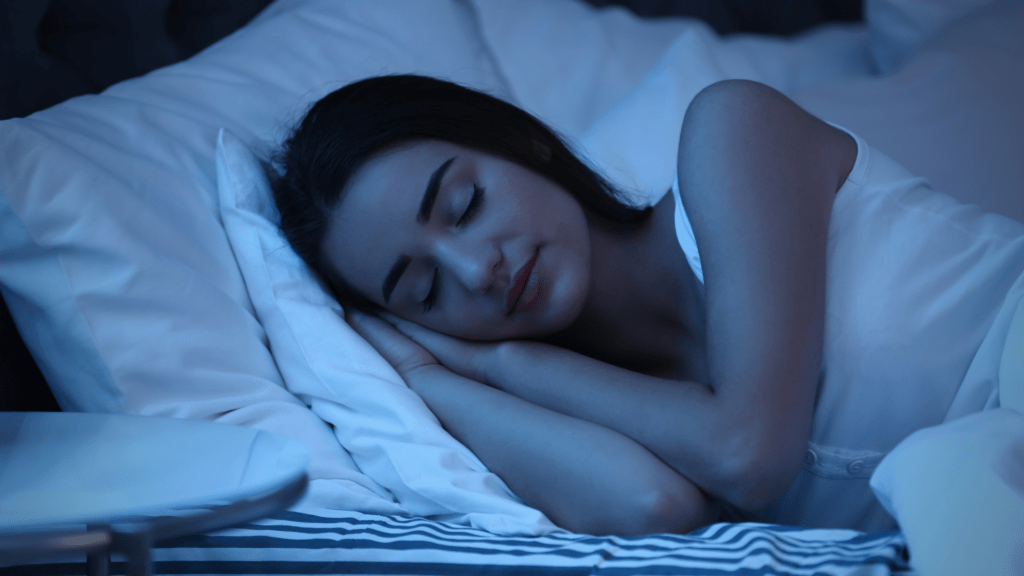
So, if you’re wondering, is core sleep good? Yes, it’s crucial! But it’s not just about getting one stage of sleep; it’s about getting enough of all the important stages. Your body needs a healthy balance of deep sleep and REM sleep to feel fully rested.
How Much Core Sleep Do You Need?
The amount of core sleep you need varies depending on age and individual factors. For adults, around 40-60% of your total sleep should be core sleep. This includes approximately 20-25% in REM sleep and 13-23% in deep sleep. The rest of your night is spent in light sleep, which helps with relaxation but doesn’t have the same level of recovery benefits as deep or REM sleep.
But how much deep sleep do you need by age? Well, deep sleep naturally decreases as you age. Young adults may spend around 20% of their sleep in deep sleep, while older adults may only get around 5-10%. This decline is normal, but it’s important to prioritize good sleep hygiene to maximize the deep sleep you get.
Deep Sleep vs. Light Sleep: How Much of Each Do You Need?
People often focus on deep sleep, but deep sleep vs. light sleep is another important consideration. While deep sleep is essential for bodily repair and growth, light sleep plays a big role in keeping your overall sleep cycle balanced. It might not sound as impressive as deep sleep, but light sleep is far from useless.
What is Light Sleep?
Light sleep makes up a significant portion of your sleep cycle, particularly in stages 1 and 2. During light sleep, your body starts to relax, your breathing slows, and your body temperature drops. This stage is crucial for transitioning into deeper sleep stages, so without it, your body wouldn’t be able to shift smoothly into deep or REM sleep.
If you’re wondering, how much light sleep is normal? Most adults spend about 50-60% of their night in light sleep, which is a natural and necessary part of the sleep cycle. It’s like the bridge that connects the waking world with deeper, more restorative sleep stages.
How Much Deep Sleep Should You Get?
How much deep sleep should you get depends on your age and overall health. For most adults, around 13-23% of their total sleep should be deep sleep. That translates to roughly 1-2 hours per night, depending on how long you sleep overall. However, like REM sleep, this isn’t a one-size-fits-all number. The best way to gauge whether you’re getting enough deep sleep is to assess how you feel during the day. If you wake up feeling refreshed and energized, chances are your body got what it needed.
If you’re getting how much REM sleep per night your body needs and ensuring that light sleep isn’t disrupted, you’ll naturally fall into the right balance of deep and light sleep. In general, the goal is to cycle smoothly through all stages of sleep without too many interruptions.
Improving Light and Deep Sleep
Want to get more deep sleep? Focusing on good sleep hygiene can make a difference. This includes sticking to a consistent sleep schedule, creating a relaxing bedtime routine, and making your bedroom as comfortable as possible. Reducing stress and avoiding caffeine before bed can also help increase deep sleep naturally.
Light sleep, it’s mostly about minimizing disturbances. Try to limit noise, keep your room dark, and reduce blue light exposure from phones or screens. By setting yourself up for uninterrupted sleep, you’re helping ensure that both light and deep sleep happen smoothly throughout the night.
How Much REM Sleep Do You Need? Busting the Myths
One common myth is that the more REM sleep you get, the better. While REM sleep is essential, it’s not about maximizing it—it’s about balance. How much REM sleep you need depends largely on your age and personal needs. For adults, you generally need about 20-25% of your total sleep to be REM sleep. This usually translates to about 90-120 minutes per night, but it’s not the same for everyone.
How Much REM Sleep Is Good for You?
When it comes to REM sleep, what’s considered “good” can vary depending on individual needs, but a general guideline is that REM sleep should make up about 20-25% of your total sleep time. For most adults, this means aiming for roughly 90 to 120 minutes of REM sleep each night if you’re getting 7-8 hours of total sleep.
During the night, your body cycles through different stages of sleep, and REM periods typically get longer with each cycle. You might notice shorter REM periods earlier in the night and progressively longer ones as the night goes on. This pattern is normal and helps your brain and body reap the benefits of REM sleep, including improved memory, emotional regulation, and problem-solving skills.
How Much REM Sleep Do You Need by Age?
Age significantly affects how much REM sleep you need. Babies, for instance, spend about 50% of their sleep in REM due to the rapid brain development they undergo. As you get older, the percentage decreases. By the time you reach adulthood, REM sleep stabilizes at around 20-25% of your total sleep. But even in older adults, this stage remains vital. Your brain still needs time to consolidate memories and manage stress, even if you’re getting less REM sleep compared to when you were younger.
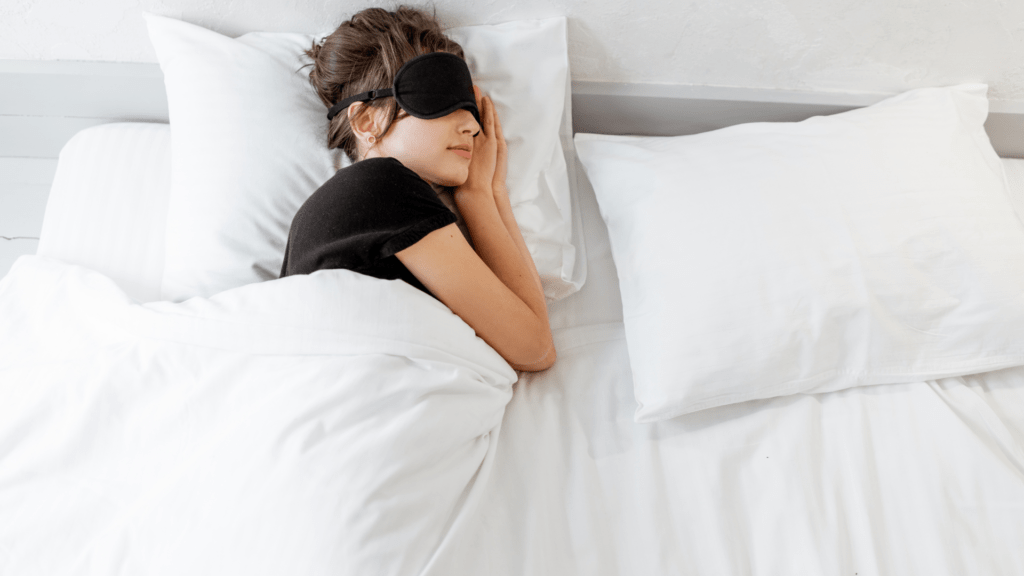
That said, while how much REM sleep is good is essential to know, it’s equally crucial to consider the quality of sleep as a whole. If you’re hitting your REM sleep goals but constantly waking up during the night, you won’t feel the benefits. The goal is to ensure that your sleep is uninterrupted and that you’re cycling through each stage of sleep efficiently.
Improving REM Sleep Naturally
To improve your REM sleep, it’s important to manage your overall sleep environment and habits. Establishing a consistent sleep schedule helps regulate your sleep cycles, ensuring you hit all the critical stages, including REM. You’ll also want to avoid alcohol and heavy meals before bed, as these can reduce the time you spend in REM sleep.
How to Track Your Sleep: Tools and Tips
If you want to improve your sleep quality, you need to know where you currently stand. That’s why many people are turning to sleep trackers to better understand their sleep patterns. Tracking sleep helps you monitor how much deep sleep and how much REM sleep you’re getting each night. But the key is knowing how to use these tools effectively.
Best Ways to Track Sleep
There are several ways to monitor your sleep, from high-tech gadgets like smartwatches to more basic sleep apps on your phone. Devices like the Fitbit or Apple Watch can give you detailed reports on your sleep cycle, showing how much time you spend in light, deep, and REM sleep.
For those wondering how long should be in deep sleep or how much REM sleep should get, these devices offer insights into your sleep stages that can help you identify trends. If you’re consistently low on deep sleep, for instance, it may be worth looking at your habits before bed—such as whether you’re unwinding properly or avoiding caffeine.
What to Look For in a Sleep Tracker
When choosing a sleep tracker, look for devices that monitor all stages of sleep, including light, deep, and REM sleep. The goal is to have a full picture of your sleep cycle. Knowing how much light sleep is normal for you is just as important as tracking your REM and deep sleep. Devices that offer insights into how long you’re spending in each stage of sleep will help you understand what might need improvement.
Another feature to consider is heart rate monitoring. Your heart rate often dips during deep sleep, so tracking this can be another indicator of how restful your night truly was. By using a tracker, you can better understand how many minutes of deep sleep you’re getting versus light or REM sleep, which can help you adjust your sleep routine.
Tips for Improving Sleep Quality
If your sleep tracker reveals that you’re not getting enough deep or REM sleep, start making small adjustments to your routine. Create a bedtime ritual that includes relaxing activities like reading or meditating to help your body unwind. Also, try to keep your bedroom as dark and quiet as possible, as this will help you fall into deeper sleep more easily.
In addition to environmental changes, consider adjusting your diet. Avoid heavy meals, alcohol, and caffeine before bed, as these can interfere with your body’s ability to cycle through sleep stages properly.
Is More Deep Sleep Always Better? Debunking the Myth
Contrary to popular belief, deep sleep isn’t always better. Many people think that maximizing deep sleep will solve all their sleep-related issues, but that’s not necessarily the case. Deep sleep is essential for physical restoration and recovery, but balance across all stages of sleep is what truly counts. Focusing on just one stage, like deep sleep, can cause more harm than good, as it can disrupt your overall sleep cycle.
It’s also important to remember that an excessive focus on deep sleep can lead to imbalances in your sleep architecture. For example, while deep sleep plays a crucial role in physical recovery, REM sleep is vital for cognitive processes like memory consolidation and emotional stability. Neglecting these other stages can affect your overall sleep quality and leave you feeling less refreshed.
Achieving a balanced sleep cycle where each stage—light, deep, and REM—gets its due share is key to optimal health and well-being. So, instead of aiming to increase just one stage, strive for a well-rounded sleep experience that supports all aspects of your physical and mental health.
How Much Deep Sleep Should You Get?
You’ve probably wondered, how much deep sleep should you get each night. Typically, adults spend about 13-23% of their total sleep time in deep sleep. For an 8-hour night, that means around 60 to 110 minutes of deep sleep. While deep sleep is critical for things like muscle recovery and immune function, spending too much time in this stage can lead to issues with sleep fragmentation or not getting enough REM and light sleep. You need all the stages to work together.
Deep sleep tends to decrease as we age, so how much deep sleep do you need by age? Young adults usually get more deep sleep than older adults, but that’s normal. Aging naturally reduces the time we spend in deep sleep, but that doesn’t mean it’s unhealthy. It’s just part of the body’s adaptation process.
Is Deep Sleep the Most Important?
Deep sleep is important, but it’s not the most crucial stage of sleep for everyone. The answer to how much deep sleep is normal can vary depending on your lifestyle, health, and age. Having a healthy balance of light sleep, REM sleep, and deep sleep is far more beneficial. Each stage has its purpose—light sleep helps with recovery from the day’s activities, deep sleep focuses on physical repair, and REM sleep helps with mental and emotional processing.
If you’re tracking your sleep and notice you’re getting less deep sleep than recommended, don’t panic. Instead of trying to force more deep sleep, focus on improving your overall sleep hygiene. A consistent bedtime routine, a quiet environment, and healthy habits will help your body naturally balance its sleep stages.
Ways to Promote Deep Sleep Naturally
You can encourage your body to get the deep sleep it needs by creating the right environment. Cooler room temperatures, around 60-67 degrees Fahrenheit, can help your body fall into deeper sleep. Relaxation techniques like meditation or light stretching before bed can also promote more deep sleep. Avoiding stimulants like caffeine or heavy meals in the evening will further enhance your ability to achieve deep sleep.
Additionally, establishing a consistent sleep schedule can greatly improve the quality of your rest. Going to bed and waking up at the same time every day helps regulate your body’s internal clock, making it easier for you to fall into deeper and more restorative sleep. Creating a bedtime routine that signals to your body that it’s time to wind down, such as reading a book or taking a warm bath, can further prepare you for a night of better rest. By maintaining these habits and a conducive sleep environment, you’ll support your body in achieving the most effective and refreshing sleep possible.
The Connection Between Core Sleep and Deep Sleep
Many people confuse core sleep with deep sleep, but they aren’t the same thing. What is core sleep exactly? Core sleep refers to the combination of deep sleep and REM sleep—the stages of sleep that are considered vital for your well-being. So, while deep sleep is a part of core sleep, it’s not the full picture.
Core Sleep vs. Deep Sleep
When comparing core sleep vs. deep sleep, it’s important to remember that deep sleep is just one stage within the core sleep window. Core sleep is essentially the minimum amount of sleep you need to function effectively the next day. It usually makes up the first 4-5 hours of your night. After you’ve achieved core sleep, the rest of the night consists of lighter sleep stages, which also play a role in keeping your body balanced and healthy.
How Much Core Sleep Do You Need?
Wondering how many hours of core sleep you need? Core sleep typically makes up around 5 to 6 hours of your total sleep time. For those with packed schedules or sleep disruptions, focusing on getting solid core sleep can help you maintain function even when you can’t get a full 8 hours. This is why core sleep is often emphasized in sleep restriction therapy—it’s about maximizing the most restorative sleep phases when time is limited.
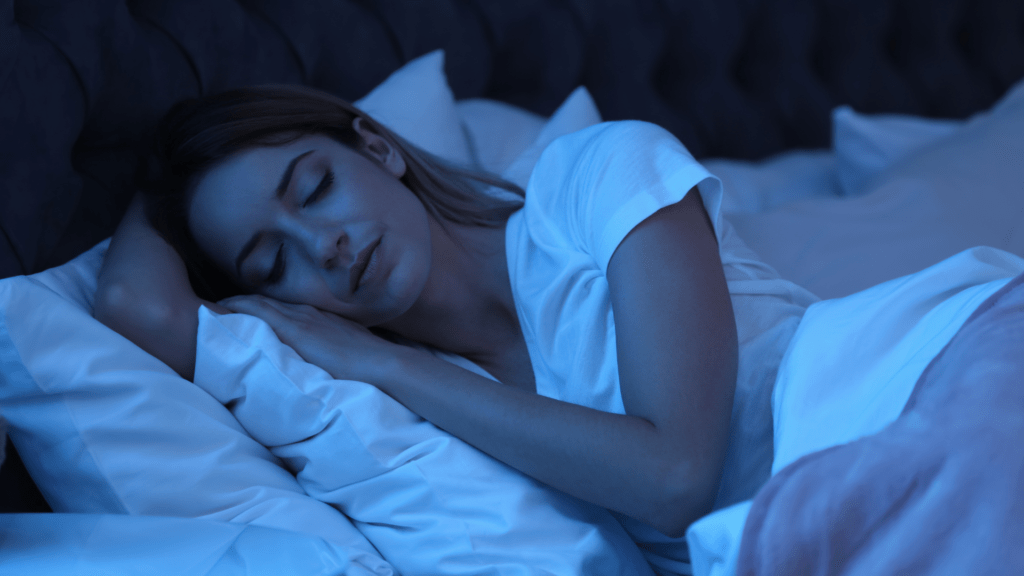
How Core Sleep Impacts Your Health
Skipping out on core sleep can have serious consequences. When you don’t get enough core sleep, which includes both REM and deep sleep, your body lacks the time to repair itself physically and mentally. Over time, this can lead to issues like weakened immunity, emotional instability, and cognitive problems.
Balancing your core sleep means ensuring you get enough deep sleep for physical recovery and enough REM sleep for mental processing. If you’re getting interrupted sleep, you may be missing out on valuable core sleep, even if you’re technically spending enough time in bed. That’s why focusing on your sleep quality—not just sleep quantity—is so important.
Moreover, sleep quality is not solely about the amount of time spent in bed but also about how uninterrupted and restorative that sleep is. Frequent awakenings or disruptions, even if they don’t seem significant, can fragment your sleep and prevent you from cycling through all the necessary stages. This disruption can undermine the benefits of each sleep stage, leading to a less restorative overall sleep experience.
To truly enhance your sleep quality, aim to create an environment that minimizes disturbances and fosters a consistent, uninterrupted sleep pattern. This way, your body can effectively go through each sleep stage and reap the full benefits of a good night’s rest
Tips to Improve Core Sleep
To improve core sleep, start by focusing on both deep and REM sleep. Practice good sleep hygiene, like setting a regular bedtime and minimizing disruptions during the night. Ensuring that you fall asleep quickly can also increase the amount of core sleep you get. Relaxation techniques, mindfulness exercises, and a healthy sleep environment can all help your body transition smoothly into core sleep stages.
Balancing your core sleep means ensuring you get enough deep sleep for physical recovery and enough REM sleep for mental processing. If you’re getting interrupted sleep, you may be missing out on valuable core sleep, even if you’re technically spending enough time in bed. That’s why focusing on your sleep quality—not just sleep quantity—is so important

